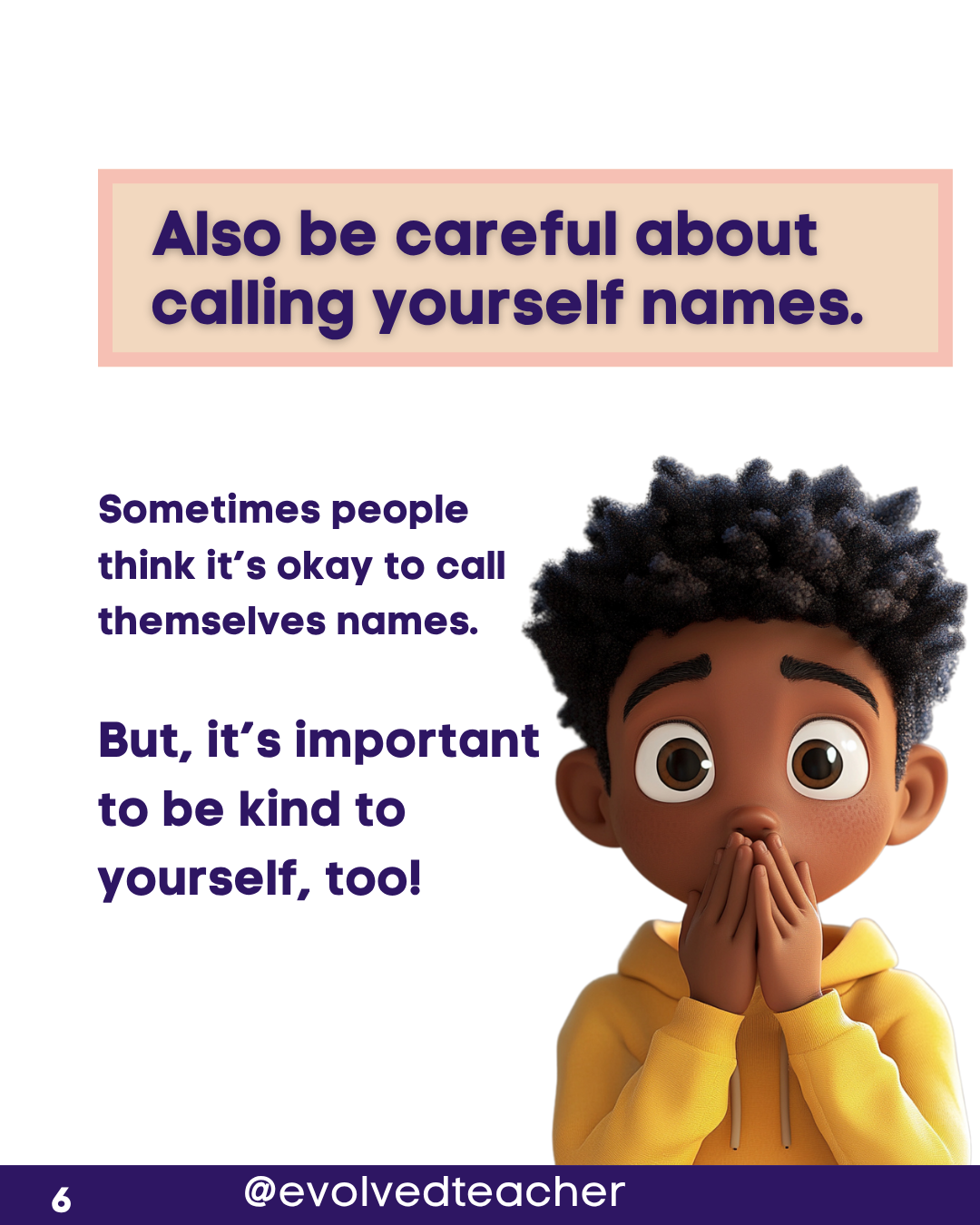Encouraging Our Kids to Be Gentle with Their Words, and Themselves
Jun 06, 2025
I began this series as a fast way for educators and families to empower the vocabularies and self-esteem of their young ones.
I get that we’re all busy, so it’s just one word a day, but words are powerful. Every day, our kids are creating meaning out of the things we say, things they hear others say, and the things they learn to say to others and to themselves.
Some of these words might seem silly, or like it’s too early to address them, but with how fast information spreads, hearing it from you, with love and intention, can be deeply impactful.
Today’s word? “Idiot.”
A word used too casually, especially when someone makes a mistake.
But when a child hears or says “idiot,” it doesn’t encourage learning.
It discourages effort.
Let’s shift that energy 👇

Why this matters:
Calling someone an “idiot," even as a joke, can make them feel like they’re incapable of learning or growing. It stops curiosity in its tracks and replaces it with shame. And no one thrives in shame.

What to say when your child asks “Why can’t I say ‘idiot’?”
“Because it’s a word that makes people feel like they aren’t smart. Even if we’re frustrated, we can use words that help others, not hurt them.”
Script to start the conversation with your child:
“Everyone makes mistakes. That’s how we learn! But calling someone an ‘idiot’ takes away their confidence. Try saying something encouraging like:
-
‘Let’s work on this together.’
-
‘You’ve got this.’”

What to look for:
-
Does your child use the word when frustrated with someone or with themselves?
-
Do they feel embarrassed when they get something wrong?
-
Are they quick to label others for not understanding something?

Ways to check in:
Ask:
“Have you ever made a mistake and felt bad about it?”
“What do you think helps someone learn, calling them names or helping them try again?”
Affirmations & Activity:
Say these together:
-
“I’m learning every day.”
-
“Mistakes help me grow.”
-
“I cheer others on, even when it’s hard.”
Try this:
Create a “Try Again” Jar. When someone makes a mistake, they can pull a note that says something kind like “Mistakes are proof you’re trying” or “You’re still learning and that’s great.”
If this word or conversation triggers YOU:
If you were ever made to feel like an “idiot” for not getting something fast enough, this might feel tender.
Say:“I used to think making mistakes meant I wasn’t smart. Now I know mistakes are part of learning. That’s what I want you to know, too.” 💛
Together, we’re raising kids who speak to others, and themselves, with patience and care.
Resources:
- "Verbal Abuse Toward Children More Common Than You Think" – A study revealing the prevalence of verbal abuse and its effects on children's well-being.
- "What Is Emotional Child Abuse?" – An overview of emotional abuse, including the use of harmful language, and its impact on child development.

